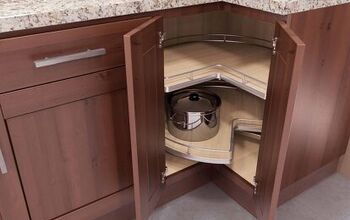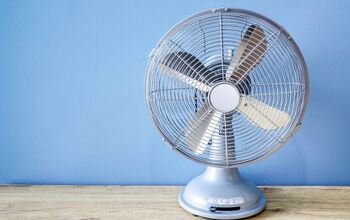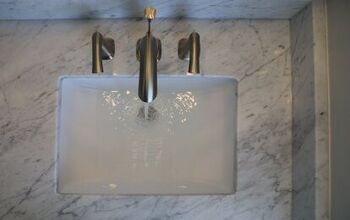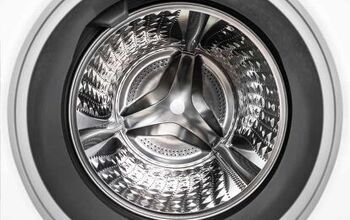Why Is My Bedding Making Me Itch? (And Ways To Fix)

Your bed is a sanctuary, or at least it should be. Humans spend about one-third of their lives in bed, so your mattress and bedding should be the most comfortable and enjoyable that you can afford. Therefore, if you find that you eventually become itchy every time you get under the covers, you must locate the cause of your itch and get rid of it sooner rather than later.
If your bedding is making you itchy, you may be using too much detergent or the wrong type of detergent. If you don’t wash your sheets often, you may have dust mites, or other types of tiny insects that are causing you to itch. The humidity level in your home can also make you itch, as can other outside allergens that make their way indoors through windows and pets.
Your bed should be the most welcoming and comfortable piece of furniture in your home. If your bedding is making you itch, the first step is finding the source of the problem. Once you identify what is causing your skin to itch, you can make the changes you need, so your bed can become a heavenly resting nook again.
Eight Reasons Why You’re Bedding Makes You Itchy
1. You’re Allergic To The Detergent
One of the more common reasons your sheets can make you itchy has to do with your laundry detergent. The main goal of washing detergent is to clean clothes. Many brands add fragrances to leave your clothes and sheets smelling nice. This all sounds great in theory, but in practice, it can cause issues.
Some detergents, especially inexpensive and extra-fragrant varieties, are loaded with chemicals that can cause skin allergies that you didn’t know you had. If you aren’t loyal to one brand of detergent or recently switched to a new brand, then there’s a good chance your detergent is what’s making you itchy.
2. Your Mattress Is To Blame
While your body touches your sheets, there’s a chance that your bed is partially to blame for your itchy skin. Some mattresses, including memory foam and beds made of other man-made materials, can attract allergens, and cause you to run hot.
Allergens, heat, and the sweat that accompanies a long night in a steamy bed can all contribute to itchy skin. If your itching started when you bought a new mattress, then the mattress may be the issue.
3. You Use Too Much Detergent
Sometimes, it’s not the type of detergent, but instead the amount of detergent you use that’s causing your skin to itch. If you wash your laundry with more detergent than recommended, your bedding may have lots of soap residue on it.
Even if the soap isn’t particularly harsh on your skin, large amounts of this residue can cause irritation. Ensure you are using the recommended amount of soap per load.
4. The Sheet’s Are Cheap And Synthetic
Sometimes even clean sheets can make you itch. This is particularly true if the sheets are made of cheap synthetic material. Many synthetic materials don’t breathe, and they can even feel abrasive on your skin. If your sheets feel more like sandpaper than soft velvet, then the material may be to blame for your itchy skin.
5. You Have Dust Mites
Dust mites are tiny bugs that you can’t see with the naked eye. They love dust and are particularly big fans of dead skin cells.
If you don’t wash your sheets frequently, you are inviting dust mites to make a home in your bedding, which is likely filled with microscopic skin cells. Dust mites can cause all sorts of allergies, including itchy skin.
6. Something Else In Your Home Is Causing Allergies
Just because you are itchy when you are in your bed, it doesn’t mean that the problem is the bed. There’s a chance you have other allergies. Mold, pollen, and even rodents can cause itchy skin. Winter allergies, as well as more common spring and fall allergies, can make you itchy.
7. You Have Bed Bugs Or Other Pests
If you notice small red bumps on your skin that look like small mosquito bites in a row, then there’s a chance you have bed bugs. Bed bugs can be an enormous problem and must be handled immediately by a professional.
Check your mattress for blood spots and tiny bugs. If you notice signs of bedbugs, call a professional right away.
8. Your Pets Are Causing You To Itch
If you have pets in your home, there’s a chance they are the reason you’re itchy in your bed. For one, pets have dander, which can cause all sorts of allergic reactions, including itchy skin. If you let your pet sleep in bed with you, know that anything that they rolled around in that day is also in bed with you. This means fleas and even oils from poison ivy and other plants that can cause an allergic reaction.
Seven Ways To Make Your Bed Less Itchy
1. Wash Your Sheets And Pajamas More Often
One of the best ways to stop feeling itchy in your bed is to ensure your bedding and pajamas are washed frequently. Washing your sheets weekly (and pajamas every other use) greatly reduces the risk of dust mites and other allergens like mold. It also makes your bed less desirable for tiny insects.
2. Buy Soft And High-Quality Sheets
If you suspect your cheap synthetic sheets are causing you to itch, invest in better sheets. Look for cotton, bamboo, or other natural fabrics. Opt for hypoallergenic sheets if allergies are a concern. Look for a high thread count in your budget range, as higher thread counts often yield softer sheets.
3. Don’t Let Your Pets Sleep In Your Bed
As tempting as it is to let your dog or cat cuddle up with you in bed, remember that these furry pets may cause you uncomfortable allergies. If you can link your itchy skin in bed to your dog or cat, then consider buying a small bed next to your bed where it can sleep.
Alternatively, you can let your pet sleep on top of your sheets, but add an additional sheet or cover that you change out nightly.
4. Buy Hypoallergenic Detergent, Mattress, And Sheets
In many cases, an itchy bed means you are allergic to something within your bed setup. If this is the case, consider using products that are less likely to cause an allergic reaction.
There are many perfume-free and hypoallergenic detergents, as well as hypoallergenic mattresses and bedding.
5. Add A Mattress Cover
If you are worried about insects like fleas, bedbugs, and other tiny pests that can live in your bed, get a mattress cover. You can even purchase a mattress cover that is specifically meant to help prevent a bed bug infestation. A mattress cover can keep bugs away, and also help your mattress stay new and allergen-free for longer.
6. Add Fabric Softener To Your Sheets
If your sheets feel hard and scratchy, and this is causing you to itch, use fabric softener. Just as its name suggests, fabric softener helps to soften your clothing and your sheets. This is an easy quick fix for those looking to have a better night’s sleep without investing in new bedding.
7. Moisturize Your Skin Before Bed In Dry Season
If you find that your itchy skin coincides with the driest time of year, then there's a good chance dry skin is causing you to itch in your bed. To help remedy this, put lotion on your skin before bed.
If, however, high humidity is causing you to sweat and itch, try ways to lower humidity in your home to prevent sweat-related itchiness.
Wrapping Up Why Your Bedding Is Making You Itch
Your bed should be a cozy nest for you to rest and sleep each night. If you notice that whenever you spend time in your bed you start to itch, then you’ll want to find the source of the problem immediately.
Pets and small pests like dust mites, fleas, and even bed bugs can cause you to itch. Not washing your sheets, using the wrong detergent, and using too much detergent can all make your skin itch. Use high-quality sheets and hypoallergenic fabrics and detergents to remedy the situation.
Related Guides:

Tom Gaffey is an expert writer who currently resides in Washington D.C. Tom has a passion for real estate and home improvement writing, as well as travel and lifestyle writing. He lived the last twelve years in Hawaii where he worked closely with luxury resorts and event planners, mastering his knowledge of aesthetics and luxury products. This is where he found his passion for home improvement and a keen interest in DIY projects. Currently, Tom resides in Washington D.C, and also working on his debut fiction novel.
More by Tom Gaffey



























